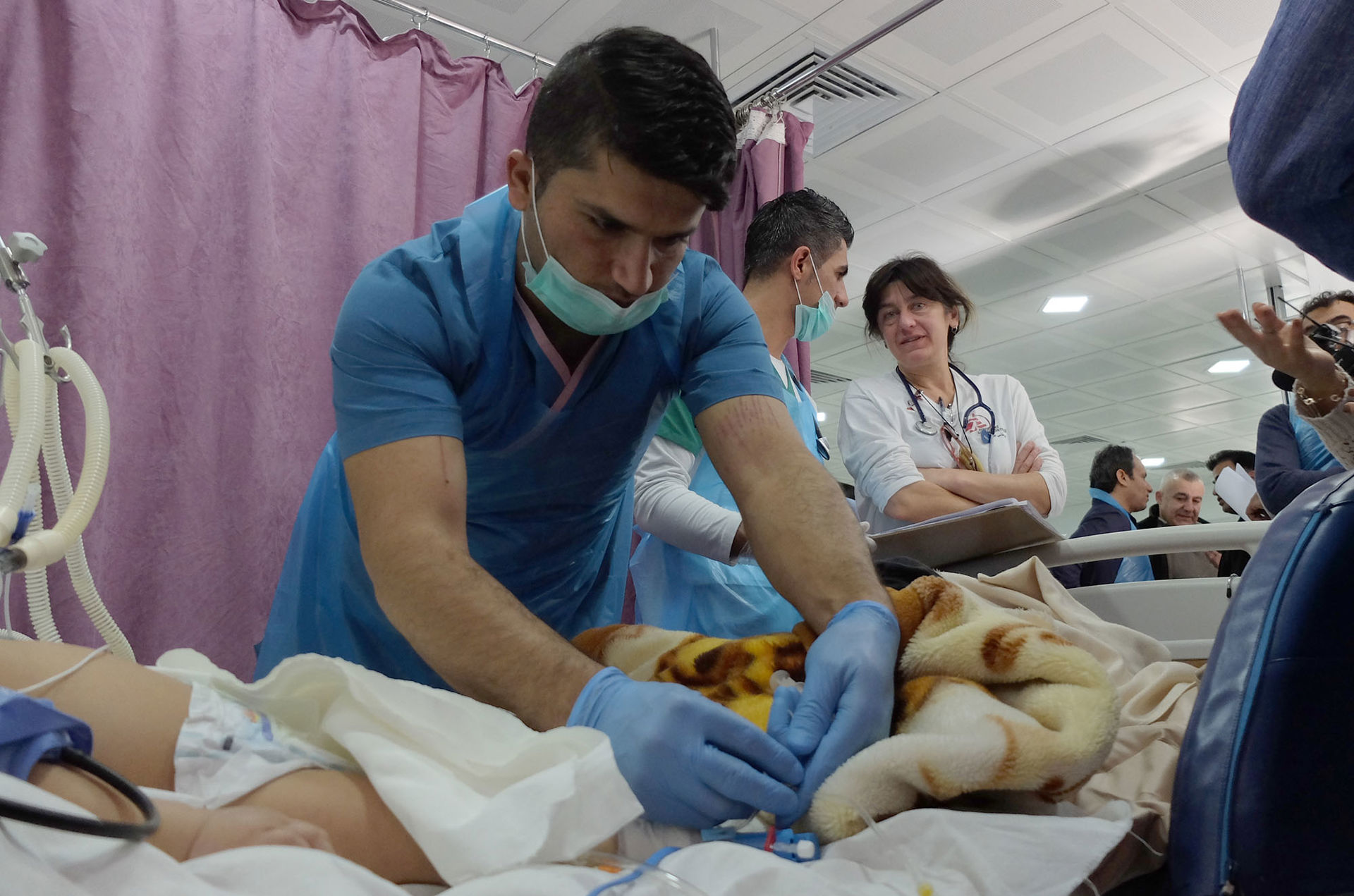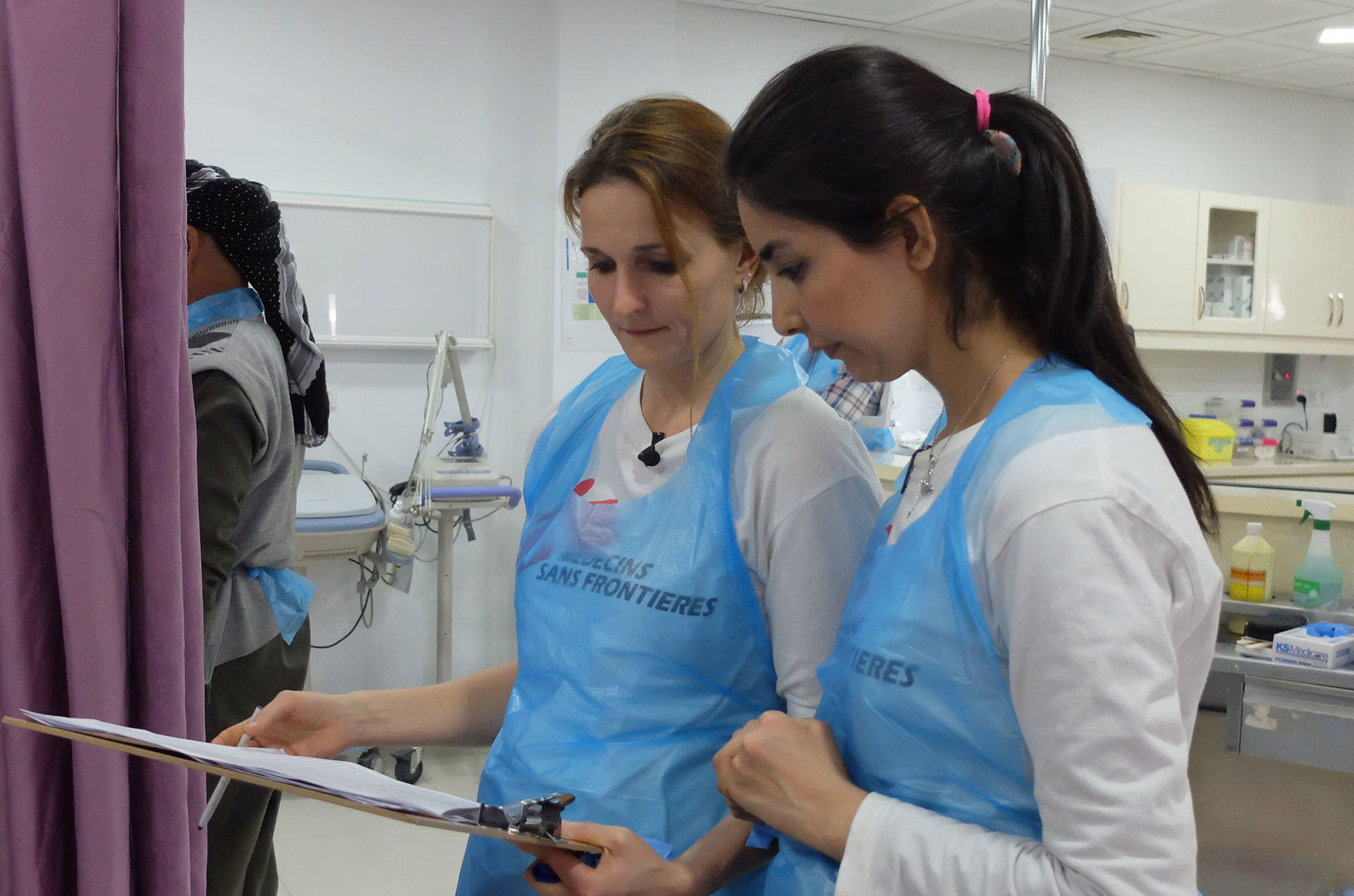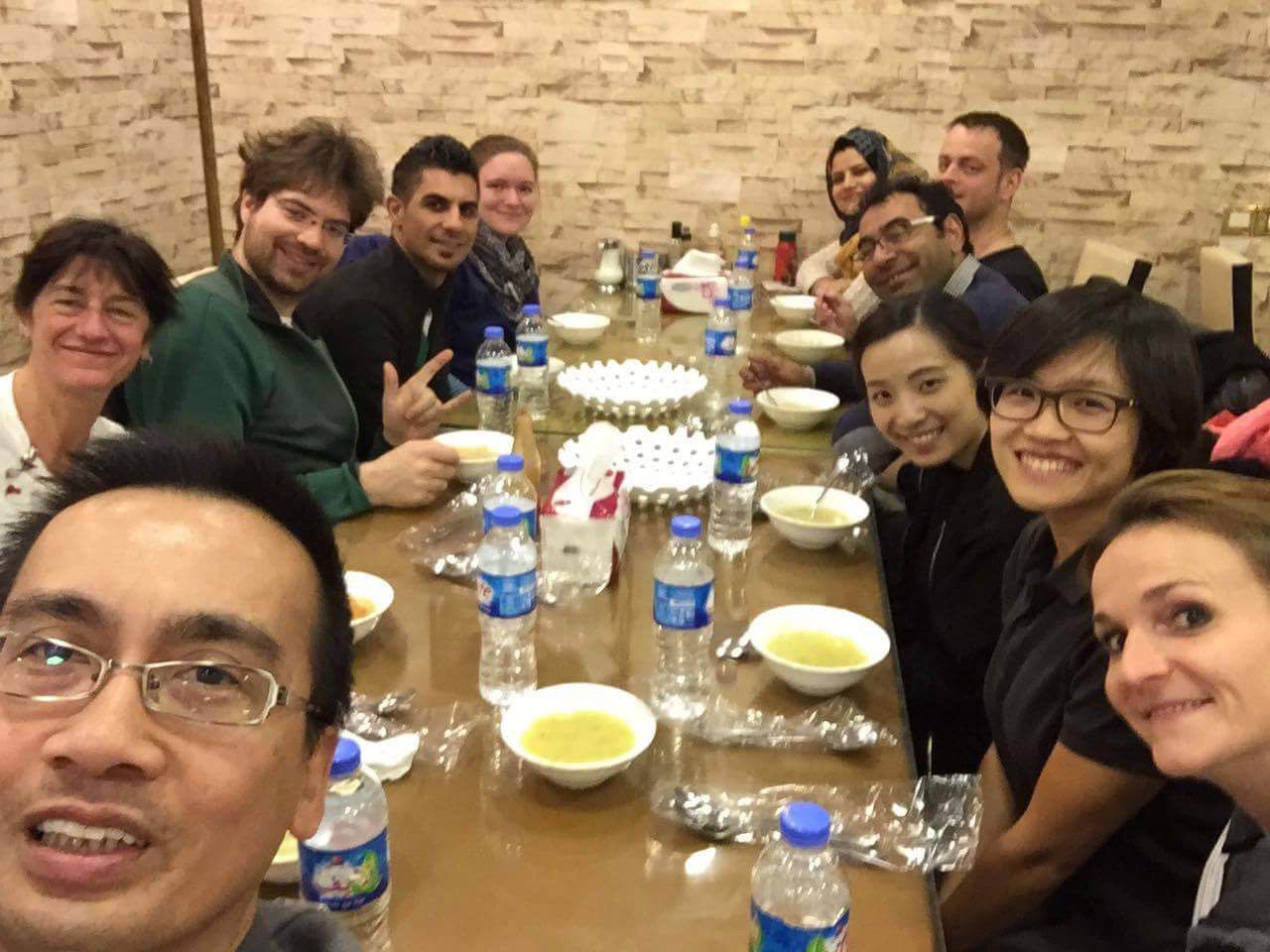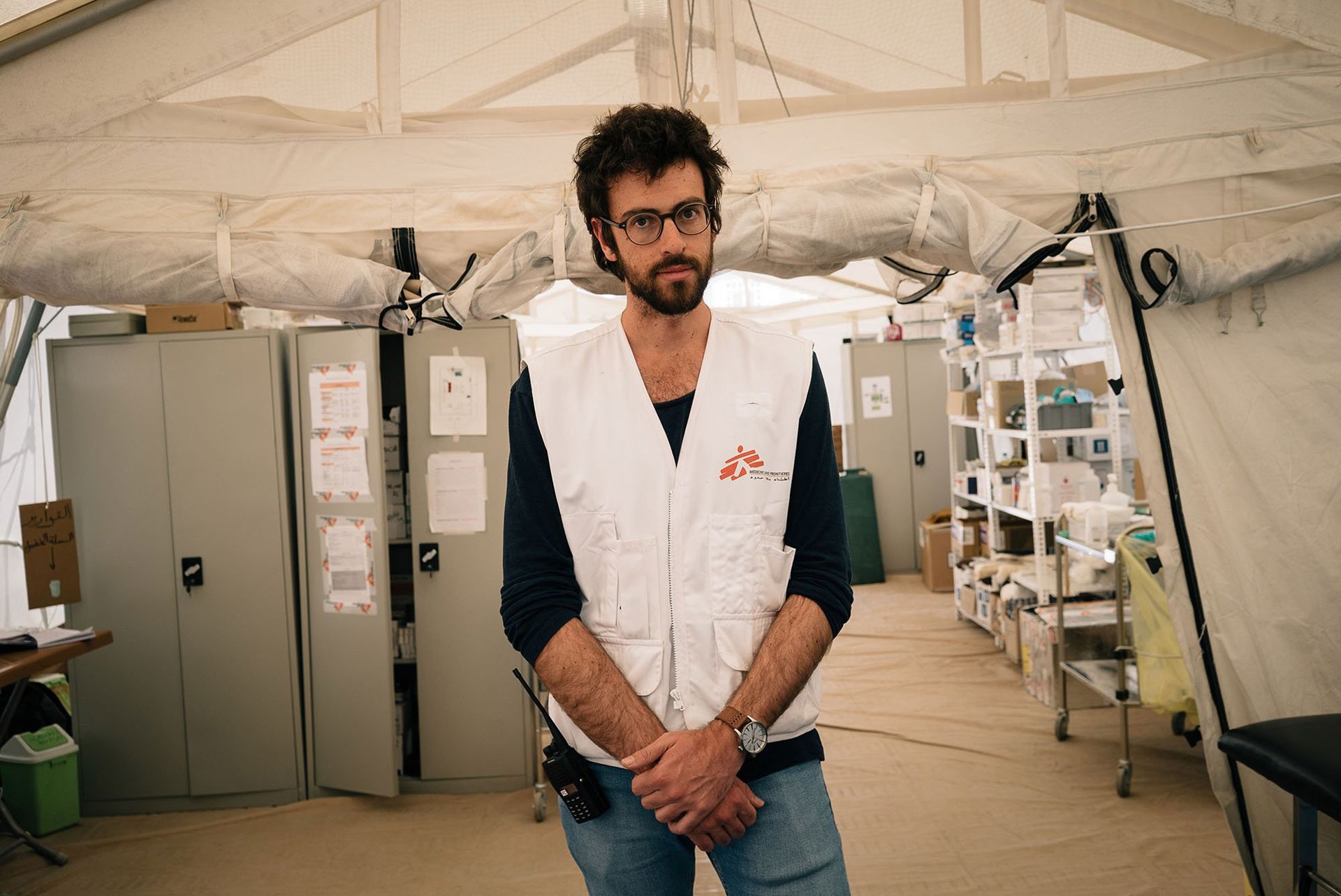Before I joined MSF-HK last September, I worked as a news sub-editor in a local television station for a few years. Sitting in front of my computer, every day I had to follow and write about the latest development of international events faraway from Hong Kong. Like most of the sub-editors, I always dream of going to all the places that I have written about. As a result, when I was given a chance to have a short working field trip in Iraq, I grabbed it in no time. With a huge backpack on my back, I headed to Sulaymaniyah with a female videographer.
Iraq is often associated with words like war, fighting, terrorist attacks and suchlike in recent years. When I was standing on the balcony of the house where I was staying, looking at the sunset in Sulaymaniyah, I almost forgot the fact that I was actually in a conflict-ridden country. The city is in the Iraqi Kurdistan region and is a relatively stable place in Iraq. Intact houses line at the two sides of a street. Fast food shops that serve fried chicken and French fries are found in a huge bazaar. You can see students carrying books walking on the streets while roads are congested with private cars. Life seems very normal here.

MSF supports the ER and ICU in Sulaymaniyah Emergency Hospital to improve quality of care and reduce mortality. ©Venus Chan/MSF
The stability in Sulaymaniyah, however, does not guarantee a complete insulation from the impacts of wars. The economy of Sulaymaniyah is adversely affected by the prolonged conflicts. With the inflow of internally-displaced persons, the medical system of Sulaymaniyah is very much stressed. MSF then supports the Emergency department (ER) and Intensive care unit (ICU) of Sulaymaniyah Emergency Hospital, which is run by the Sulaymaniyah Directorate of Health. MSF provides training to the local staff and helps in the structural renovation of the ER and ICU facilities so as to improve the quality of care. The project coordinator, Alessandro Massa, told me that the hospital was the main referral facility in the region and was the only trauma facility in Sulaymaniyah Governorate. As conflicts in Mosul, Kirkuk, Hawija and other places in northern Iraq continue, a well-functioning ER, ICU and other medical care services in Sulaymaniyah Emergency Hospitalare certainly valuable.Despite the dire situation in the country and the conflicts in the area, the services are up to the standards emergency and intensive medical care is provided for all the population, both the people here displaced from their homes by the fighting S and the host community.
I stayed in the ICU most of the time for interviews and video shooting during the trip. The ICU was renovated by MSF teams late last year and it is very tidy and well-equipped now. I met Joyce Baker, an ICU nurse from the Netherlands there. She came to Sulaymaniyah for her first MSF mission. When she arrived at the project six months ago, the ICU was still under renovation. And now, the ICU functions smoothly and she felt very proud of it.

ICU nurse Joyce Baker (left) tackled a mass casualty event from Kirkuk during her six-month mission in Sulaymanitah, witnessing the consequences of conflict in Iraq. ©Venus Chan/MSF
During the time when Joyce worked in Sulaymaniyah, the ICU mainly received patients from the community, for instance, the injured from road traffic or domestic accidents. Working in the main referral hospital in the area , Joyce had a chance to witness the consequence of the conflict. “It was a day off. We were shopping in a bazaar with the ICU doctors. Then we received a phone call that there was a mass casualty from an attack and there were 50 patients arriving with ambulances from Kirkuk. Most of them suffered gunshots and blast injuries,” recalled Joyce. Since Kirkuk Hospital doesn’t have secondary and tertiary medical level capacity for complicated and serious cases, therefore all patients who required highly specialized medical intervention were transferred directly to Sulaymaniyah at that time . Joyce described the hospital as very busy and crowded on that day. “In Netherlands we did a lot of training for mass casualties and here, it just happened.” She was surprised by the comprehensiveness of the hospital as it could nearly offer one-stop medical services to patients who were referred here. The patients could first receive emergency care and were sent to operation theatre or ICU accordingly or further referred to other hospitals for specific treatments after stabilization. “It was a very special experience. We were working hard for many hours all together. It gave you a strong group feeling.” The story of Joyce has also proven the importance of having a well-equipped hospital in a country that was torn by conflicts.
Every evening when I finished my work, I hung around with the videographer and there were always shopkeepers who showed great hospitality whenever they saw our Asian faces. Being able to live with stability in a conflict-ridden country is a scarce happiness. And I deeply hope that the friends that I met there can keep on living with this happiness.

Venus Chan (third on the right) visited the MSF project in Sulaymaniyah, Iraq and had lunch with field workers from various countries. ©Venus Chan/MSF
Venus Chan is a communications officer of MSF-HK. She visited MSF’s Sulaymaniyah project in Iraq last February. MSF supports the ER and ICU of Sulaymaniyah Emergency hospital in order to improve the quality of care.


